Maritime transport for SMEs: how to secure your exports outside the EU
With international trade booming, more and more French SMEs are taking the plunge into exporting outside the European Union. This dynamic can be explained by the search for growth drivers, the diversification of commercial outlets, and the opportunities offered by certain emerging markets. Against this backdrop, shipping is an essential strategic lever.
There are several decisive advantages to this type of logistics. Firstly, it enables a significant reduction in unit costs when volumes are substantial, notably via FCL (Full Container Load) or LCL (Less than Container Load) solutions for smaller quantities. Secondly, sea freight offers great flexibility in terms of the type of goods involved: manufactured products, raw materials, perishable goods, industrial equipment or even regulated goods. What’s more, this mode of transport is particularly well suited to flows to so-called “complex” areas – such as Africa, the Middle East or Asia – where logistical, customs and regulatory constraints require specific expertise.
However, despite its advantages, maritime transport also entails risks if each stage is not rigorously controlled. Port delays, documentary errors, customs disputes, breaks in traceability: these are all factors likely to impact the international commercial performance of SMEs.
That’s why it’s essential to surround yourself with an experienced partner, capable of providing comprehensive support, from quotation to final delivery. TBI, a customs-approved ocean freight forwarder, provides SMEs with technical know-how, responsiveness in the field and in-depth knowledge of non-EU circuits.
Securing your export flows via sea freight is not something you can improvise: it requires rigorous preparation, appropriate logistics and expert management.
Choose a responsive, experienced logistics partner
In a context of increasing internationalization, the choice of a logistics partner is a determining factor in the success of export operations. Particularly when it comes to maritime transport to areas outside the European Union, reliability and expertise are essential. Not all transport companies have the technical, regulatory and human skills required to manage sensitive international flows.
First of all, you need to make sure that the forwarder you select is familiar with the specific customs requirements of the countries you are targeting. Indeed, regulations outside the EU can vary considerably from one destination to another. Incorrect declaration or incomplete documentation can result in customs blockage, unforeseen additional costs or critical delays. An experienced partner will be able to anticipate these requirements, put together the appropriate files and guarantee compliance with customs formalities.
Secondly, the management of sensitive goods requires specialized skills. Dangerous goods, perishable products, technical equipment or goods subject to specific regulations (military, health, high-value) require rigorous monitoring and adapted processes. A sea transport service provider who regularly handles these types of flows will be able to ensure their safety and integrity, while complying with international standards.
Thirdly, personalized follow-up is essential. SME exporters expect a direct relationship, with a dedicated contact person able to respond quickly, propose concrete solutions and maintain fluid communication. This guarantees proactive support and greater responsiveness to logistical contingencies.
In this respect, TBI has structured itself to meet precisely these requirements. Thanks to an agile organization, teams available 24 hours a day, and proven expertise in sea transport, TBI provides comprehensive, reliable and customized support for every exporter.
Control customs formalities from the outset
When it comes to sea freight, customs formalities are a critical link in the logistics chain. An error, an oversight or an approximation in administrative documents can lead to immediate blockage of goods, financial penalties or significant delays in deliveries. For exporting SMEs, these incidents can have a direct impact on customer relations, cash flow and commercial reputation.
So the first step is to anticipate all customs formalities. This involves correctly identifying goods via TARIC codes, registering the EORI (Economic Operator Registration and Identification) number in advance, selecting an Incoterm suited to the conditions of sale, and compiling the certificates of origin and other supporting documents required by the authorities in the destination country.
At the same time, we strongly recommend that you entrust the management of these formalities to a approved customs agent. This status guarantees the operator’s ability to handle all regulatory formalities, in compliance with French and international customs requirements. At TBI, this accreditation enables us to act with rigor and responsiveness, while offering legal certainty to our customers.
In addition, centralizing documents in a secure customer area is a best practice that should be systematized. It enables rapid access to critical documents (invoices, DAU, BL, certificates), improved traceability of exchanges, and easier coordination with logistics partners.
Finally, to reinforce the autonomy of SMEs and limit the risk of error from the outset, TBI offers free export coaching sessions. These educational sessions cover the basics of sea freight, good documentary practices, and the pitfalls to avoid, in order to secure export processes outside the EU on a long-term basis.
Demand real-time tracking of your shipments
In a global logistics environment marked by instability – port delays, strikes, geopolitical tensions or climatic hazards – the notion of traceability is becoming a strategic imperative. For small and medium-sized exporters using sea freight, the ability to track shipments in real time and anticipate unforeseen events directly conditions the reliability of commercial commitments.
First and foremost, a competent service provider must offer real-time access to shipment status. This includes visualization of key stages (pick-up, loading, transit, arrival at destination port) via a clear, secure digital interface. Such transparency enables logistics teams to more effectively plan the receipt, distribution or processing of incoming goods.
Secondly, the implementation of automatic alerts in the event of an anomaly (ship delay, port incident, customs blockage) is essential. These proactive notifications enable SMEs to react quickly, warn their end customers, and limit the impact on the supply chain.
In addition, proactive contingency management is based on the sea freight forwarder’s operational experience. It’s not just a matter of noticing a problem, but of immediately identifying alternative solutions: changing the itinerary, reorganizing the last kilometer, intervening with local customs authorities. This ability to adapt is all the more essential in flows to complex zones (Africa, Middle East, Asia), where logistical disruptions are frequent.
With this in mind, TBI relies on a consolidated international network and proven digital tools to guarantee its customers complete and continuous visibility of their sea transport operations. This ensures transparency, responsiveness and peace of mind throughout the export process.
Opt for logistics tailored to your size
When it comes to ship freight, small and medium-sized enterprises (SMEs) are confronted with specific constraints, often more structural than those of large groups. Indeed, the slightest disruption – delay, document error, additional logistics costs – can have immediate consequences on the commercial chain, invoicing times or customer relations. Unlike large organizations, SMEs have limited resources, in terms of personnel, tools and room for maneuver.
As a result, it is essential that the sea freight services offered to these companies are adapted to their operational realities. This implies, on the one hand, the availability of packaged solutions: clear pricing, no hidden costs, clear conditions right from the quotation stage. This budgetary transparency enables SMEs to integrate logistics costs into their pricing policy, while avoiding financial contingencies.
On the other hand, human support is a decisive lever for securing flows. SME managers and their logistics executives expect a single, available and competent point of contact, capable of advising them on customs formalities, choice of incoterms, and transit times. Personalized follow-up throughout the entire process, from quotation to final delivery, guarantees smoother operations.
Last but not least, our mastery of zones outside the European Union remains a differentiating asset. Flows to Africa, the Middle East or Asia require in-depth knowledge of local particularities (regulations, infrastructures, customs practices). Thanks to its expertise in these strategic destinations, TBI is in a position to offer exporting SMEs specialized support, which significantly reduces risks and reinforces the overall reliability of sea transport.
Don’t let price be your only criterion
In the seafreight sector, the advertised price of a logistics service does not always reflect the operational reality or the quality of service provided. A seemingly attractive quote may in fact conceal unmentioned additional costs, partial coverage of expected services, or even a lack of responsiveness in the event of an unforeseen situation. For an exporting SME, these discrepancies can generate economic losses, breaches of trust with end customers, or contractual penalties.
It is therefore imperative to adopt a rigorous approach when analyzing commercial offers. The first thing to check is what services are actually included in the quotation: document management, customs formalities, transport insurance, real-time tracking, port handling, etc. A lower overall price may only cover the bare minimum, forcing the company to incur additional costs.
In addition, it’s essential to ask the service provider about its specific experience in the target destination. Sea transport** to complex areas – such as West Africa, the Gulf, or South-East Asia – requires in-depth knowledge of port infrastructures, usual lead times, risks of congestion, and local customs constraints.
Finally, it’s a good idea to ask what provisions are made in the event of disputes, delays or unforeseen circumstances. A reliable partner must be able to propose a continuity plan, alternative solutions and a clear commitment to responsibilities.
This is the logic behind TBI’s offer. By focusing on transparency, reliability and expertise in the field, we build business relationships based on trust, with SMEs who are looking for more than just a tariff: a sustainable logistics partner in sea freight.
FAQs
1. Is sea freight suitable for SMEs ?
Yes, thanks to groupage (LCL), SMEs can ship small volumes at lower cost, with a level of security equivalent to FCL.
2. What customs documents are essential ?
Commercial invoice, packing list, certificate of origin, EORI number, and customs documents (DAU, TARIC, Incoterms). TBI can help you prepare them.
3. What to do in the event of a delay or incident ?
A responsive service provider like TBI offers real-time monitoring and immediate solutions: rerouting, customs management, logistical reorganization.
4. What if I don’t have a dedicated export team ?
TBI offers turnkey support for smaller structures. A dedicated contact person follows you from A to Z.
5. How is the quote drawn up ?
The quotation includes all services (transport, customs, documentation). At TBI, there are no hidden costs: everything is explained in advance, with complete transparency.

